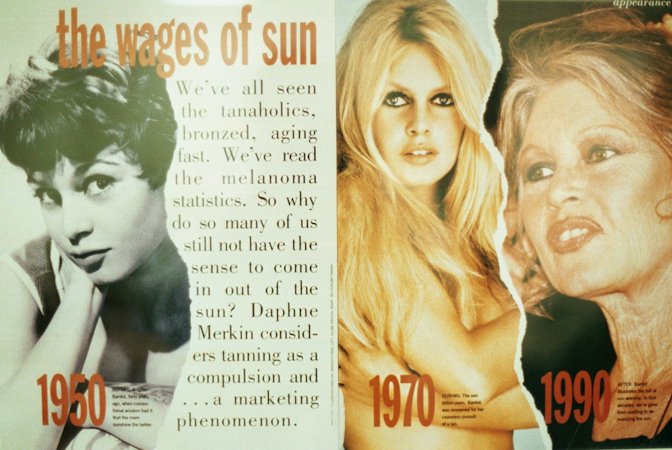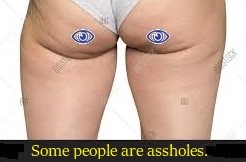 Welcome
Welcome"Who, if I cried out, would hear me among the McDonald's orders?" (¬Rainer Maria Rilke)

I do not like dogs (when I was a small child a small dog frightened me, and it left a lasting impression...). I am a cat person. I don't like what it feels to touch a dog (and have a similar averse reaction to touching other fauna); I enjoy rubbing my face in kitty's fur.... But my wife and daughter desperately wanted a dog, and didn't give me any choice in the matter. They adopted a rescue dog from Puerto Rico (See: The Sato Project). Ever since, I have had to be vigilant to keep the cats from getting out the door, wandering away, and becoming "Lost cat"s. This has cost me non-trivial effort ("neque perditus factus feles"?). The dog jumps on me; I find I can at least keep her presumably non-belligerent, playful assaults ["She's telling you she loves you! She doesn't understand that you don't love her."] from completely blocking me, by turning my back to her, and thus causing them all to be directed to my back – like deploying a lightning rod against thunder storms. I keep the dog's water bowl filled, "let her out" to do in the yard what the cats do in their litter box [kitty litteracy], etc. I think that's showing a pretty good attitude, really.
B>ut although I do not like dogs, I also can appreciate them. Around the end of February 2020 my wife became ill, and shortly thereafter my daughter was summarily evicted from her college dormitory room due the school's preparations for the coming plague (Covid-19 pandemic). "The dog", her name is Zara [lucky puppy!] – Zara has provided a kind of companionship and pleasure to both of them "during lockdown", which the cats do not (cannot?) offer.
I woke up this morning (24 May 2020) thinking about border collies, "service dogs", soldiers' partner dogs in Afghanistan, et al. They have hard work to do but it seems to make them happy. The same cannot, of course, be said of the jobs many humans do to earn a living. And, also of course, there are many managers who, whether or not it would make them happy – they might rather be playing golf, etc. –, at least expect their employees to run in circles and jump through hoops to do what they want without them having to ask them to do it. On the other hand, I once had a higher-than-first-line manager who said: "I want to see asses and elbows."
"Deadlines (at least for persons who are not EMTs) kill." (BMcC)
Suppose we provided every person with the means to live, just because they had been born[1] and they were members of society – no strings attached –, and they could work if they wanted to or not work if they didn't – a guaranteed more-than-basic income. How many would be border collies, service dogs or soldiers' partners, and how many would be "wastes"? Because the means for everybody to live would still need to be produced, the question it seems to me, becomes: How can we structure socially necesary work so that persons would do it because they wanted to, not because – threatened with an unpalatable "Or else!" – they had to? Laborare est orare. Working should be praying (not preying!).[2] And if somebody had an idea they could not implement all by themself [an invention], they would have to figure out how to appeal to others to join them (not hire employees, which bears similarities to buying slaves, except often with less motivation/responsibiity to take care of them!).
G-d kicked Adam (and Eve) out of the great Social Welfare state, and burdened them with what I call, disdainfully: "pragmatic agenda" (things persons have to do that eat up time and energy which should be available for savoring things). Presumably, even given everyone's best efforts, there would be some tasks that, as currently constituted, nobody would want to do but which still needed to be done (e.g., garbage collection?), although how can we call technological motion progress in an honorific sense if it does not reduce the quantity of "necessary labor", so that this domain should asymptotically keep shrinking toward 0 over time?
Everybody could aspire to live with what is good, not be addicted to what is new, thus minimizing necessary labor/pragmatc agenda. On the "consumption" side (←"consumption" used to mean: tuberculosis), things: household appliances, clothes, etc. could be so well designed and so well built that persons would enjoy using them and develop ever deeper appreciation of and affection for them, endurer(sic) products largely replacing consumer products. On the "production "side, persons would want to produce these things even though they didn't have to, because the things and the process of making them would be like the process and products of true craftsmenly work (e.g., craft pottery), which bring genuine satisfaction to the craftspersons. I envision a polytechnic, partly high- and partially low/traditional-tech, society of craftspersons [some of whom would still honorifically be called scientists and engineers] who would agree with Nietzsche: "What do I care about happiness? I have my work." (But they should, of course, have some happiness too, even if it was not the most important thing.)
I once worked with a man, Art Appel in IBM, who had pasted to his office door: "Three things are not possible: the desire of the rich to have more, the desire of the sick for something different, and the desire of the traveller to be any place but here." The early Jesuit missionary to China, Matteo Ricci, wrote back to his mother: "To go on an adventure one does not need to leave one's native town."[3] St. Paul said: "Prove all thing; hold fast that which is good." These are "untimely" thoughts. But in our society which seems to be accelerating itself ever faster into a 24/7 psycho-social black hole (like Little Black Sambo's tigers?), there are already persons who live this way: connoisseurs – a word which, while it has elitist connotations (what's wrong with raising oneself up if it doesn't come at the cost of putting someone else down?), is also an honorific. Be a Daedalus, not an Icarus!
Let me be clear: I am here proposing a radical change to society, not only rejecting "free enterprise" which is a euphemism for the freedom of some ambulatory bipeds to exploit many others, but also rejecting probably most of the things most people consider "fun" or even essential in life. Let us call my neither eu- nor dys- topian vision: the killjoy/spoilsport society. Its automobile bumper sticker is: "Killjoys save lives".[4] It is even more un-American than the bugbear "socialism" although it set-theoretically [ref'. Venn diagram] overlaps with that. Let's consider some examples, where I will deploy a word I generally eschew: "people", because it constellates persons into masses, instead of respecting each person(sic) as an individual, and, I would eradicate "people" from the spiritual world like we have already eradicated smallpox from the physical world. A couple examples:
 |
(1) People like to sunbathe.[5] That causes skin cancers that make work for doctors to treat them [the cancers] to save them [the people become patients] from suffering and death. "We love to sunbathe; it makes you [not me!] feel so good to bake ourselves in the sun [Should I fetch a turkey-baster for you?] and nobody wants to be a 'paleface' [I do]?...."
Why should society need to have doctors treat all these preventable basal cell and squaous cell cancers and melanomas?[12] I doubt there are many persons who would choose the work of treating preventable skin cancers if nobody had to. It is one form of necessary labor I would abolish. Society may require doctors, thanks to God and evolution, but not thanks to man. Of course, I may be wrong here. If persons would freely elect to go to work for the opportunity to treat preventable cancers [instead of educating people to prevent them, or doing something else altogether...], then sunbathing might continue to "live" in my hopefully not brave new workworld, albeit I think such doctors would be "sick" souls since they would also have to enlist other persons to get the cancers but we have seen there are currently many volunteers so that should not be a "problem" after all [Anent bravery: In Bertolt Brecht's play "Galileo", a student speculates: "Happy the land that breeds a hero." Galileo replies: "No. Unhappy the land that needs a hero." Also: In his fine essay "Leisure [is] the basis of culture", Josef Pieper wrote that heroism (sacrifice) and civilization (leisure) cannot occur concurrently in a person's life.].
(2) Diamonds are a girl's best friend. Show her you love her by taking on consumer debt to buy her a big one. (What could you do instead? Maybe write her a haiku?) But who would lust to be a diamond miner if they got the same pay for not punching in? Don't give her a diamond and you eliminate a lot of work persons currently have to do but don't want to. Of course this is no longer so true since scientists can now make real big gem grade diamonds as good as natural stones in the lab. This is an example of the principle that modern alchemy can turn what previously was necessary labor no person would want to do if they didn't have to into machine processes that don't waste persons any more – indeed, as I noted above, I consider this one criterion of "progress" as opposed to just "making work"/churning (fashion, etc.).
After one strips out all the amusements in life, what would be left for persons to enjoy? Their "god given" bodies and minds. The pleasures of good food. The pleasures of good beverages. The pleasures of good sex. The pleasures of good conversation. The pleasures of playing with a loving pet dog or cat. The pleasures of solving puzzles. The pleasures of just relaxing and "doing nothing". For some the pleasures of art. The pleasures of learning. The pleasures of handling fine craft objects. For some, the pleasures of doing crafts like making your own clothes or sewing quilts of knitting. For some, the pleasures of gardening. For some, the pleasures of fishing. Replace sentimentality with connoisseurship. What's the goddamned problem?

Beyond the prospect of delivering us from evil, I also have a vision of good we could all have opportuity to live for. It is nothing new. Dr. Francis Rabelais described it in his Abbey of Theleme. More recently, the Polish sociologist Jan Szczepanski (1913-2004), elaborated it in his magisterial essay "Individuality and society" (Unesco publication "Impact of science on society", 31(4), 461-466).
When I read Professor Szczepanski's essay in the library of the IBM Thomas J. Watson Research Center, back in the days when they accessioned books and subscribed to journals with no business case [apocryphal IBM manager: Buzz Case], it deeply affected me. I had not seen it for many years. But now, when, after sending Robbie a citation of it as a gift, he responds to me with a copy of it (available free on The Internet), I can read it once again. While engaging in re-engagement with this to-me well known though long forgotten territory, I found myself digressing on the reference to Adam Shaff's "Marxism and the Human Individual". To borrow a trope from Martin Heidegger, being not a logger, I started wandering down a logger's path (Holzwege) and getting lost. But I eventually came to a clearing: Erich Fromm's "Introduction (Draft) to Adam Schaff Marxism and the Human Individual", which is available on the official Erich Fromm website Document Center, from which I shall not quote due to an intimidating copyright warning at the top of each page. Anyway, I ended up reading Fromm's fine essay, and emerged, not lost, from my digression, to continue reading "Individuality and society".
"The net" is that what people have in common divides, whereas what is unique to each individual can unite. The desire for a greater share of limited common goods results in winners and losers, whereas the creation of something genuinely new, i.e., which is not part of the existing aggregate, takes nothing away from anyone. Of course, even the greatest innovator needs to eat, but he or she eats to live more, not lives to eat more (Maslow's hierarchy of human needs). I have cited Art Appel's dictum that "three things are not possible: the desire of the rich to have more, the desire of the sick for something different, and the desire of the traveller to be any place but here." I have also cited Matteo Ricci's observation that "to go on an adventure one does not need to leave one's native town". The new digital media technologies can facilitate both these teloi but they can also facilitate Bigger Gulps (ref: the largest size cola drinks one can purchase at 7-Elevens), which is why I believe Clifford Stoll's admonition is so important: "data is not information, information is not knowledge, knowledge is not undertanding, and undertanding is not wisdom".
One more point: in the killjoy nation, there would be no winners and no loosers[6], and no activities that aid and abet them (of course there may be exceptions). Every winner treads upon a [usually invisible] pile of losers. What winning means may just be being less worse than somebody else, not necesarily anything good. (Louis Forsdale told of a softball(hardball?) game when he was at, I believe, Black Mountain College but I may misremember this detail. Anyway, the game began with everybody goofing around and having fun and not playing good baseball. Then, he said, somebody started taking it seriously, and the play mutated into two teams striving to beat each other. Forsdale said that what had been play and fun turned serious and ugly. End of story. As an aside, I would also discourage folks from becoming record-breakers (e.g., athletes). Why? Because it tends to put excessive strain on the body and unnecessarily risks injury. I would encourage athletes and others to aim for e.g., 90% (80%?). Push it, but not too hard. Nothing in excess. Better safe than sorry. Take the time to think about whatever you are doing. Ask Professor Forsdale's question: "What is this an instance of?"
I imagine a world in which the only stars are in the superlunary sky and the only fans are in cooling systems, a world in which none become big by making others small. All persons would have time for study and opportunity to have safe fun. And, as to those who create something of world-historical value, those individuals who not just gain fame (the sublunary "stars") but genuinely earn broad and lasting recognition (geniuses?), as well as to Everyman, I say: No person rises so high that they cannot reach a hand down to help another person up [I've met some who violate this principle].
When addressing those we are concerned may have ears but hear not and eyes but do not see, I have come up with a strategy to help make the potentially not-a-conversation more fruitful. After asking the question, provide, in quotes, verbatim, the correct answer for them to use in case they cannot come up with it themselves. This strategy must, of course, be deployed with caution, to keep oneself from becoming a bug rubbed out under an Important Person's boot (wing-tip or high-heel or high-end sneaker shoe, etc.). This is another part of the killjoy solution: spoiling prudes' and other Superior Beings' pleasure in innocently(sic) grinding little persons down ("What? Who me? Why, just who do you think you are?...." Just read the script, dude. Still having trouble? Try some Ex-Lax.) I imagine Professor Galileo Galilei would have secretly loved this paragraph.
I think it is obscene and dehumanizing for everybody else that persons get zillions of $$$ income for butting their head against small spherical objects (aka soccer balls) or other such doings. At most, maybe they should be paid like ballet dancers, if their skill is up to that level, for both kinds of activities are muscle movement trainings, although the ballet dancer may require more cultivation than the head-butter so maybe the ballet dancer should be paid more.
As Robbie writes here: "Shakespeare lived a human life, as you are doing." Why cannot "you" -- OK, just me, and I am working on this for myself -- live a human life instead of persons constellating themselves as inferior beings ("fans") in relation to superior beings ("stars")? And who head-butter is such a superior being beyond the differential altitude of their head and the apogee of parabolic arc of the small spherical object? I seem to have read that the great writer Robert Musil scraped by on donations from a social organization, The Musil Society. To paraphrase (POTUS №45) Donald J. Trump's sometime White House Chief of Staff, Mick Mulvaney, Why cannot people just "Get over it", i.e., get over their self-deprecation?
"Rise up, O men of God, Have done with lesser things...."
I have read (ref. lost) that the Madonna who/that is not the real Holy Mother of God, one day, discovered she was ovulating. She wanted to get inseminated (become pregnant, aka: have a child) by her chosen stud. She telephoned him and told him she was sending a private jet plane to fetch him,. He obliged, and was transported to the required GPS coordinates. I have no idea what happened after that. I do glean from the article that the stud was not even a stallion (male horse).
A recruiter ("head hunter") once told me: "If your boss says: 'Jump!', you ask: 'How high?'". My reply to said recruiter should have been something like: "Jump!" The proper response to such a boss should be something like: "Can you kindly explain what is wrong with yourself to treat a fellow human being like a trained circus animal, Sir?" The invisible hand has no soul.
The killjoy solution extends beyond the realm of economics. It is a "global" worldview. I end this essay with another of its tenets: If knowing how the story will end before beginning to read it detracts from the experience of engaging with (aka reading) it, then the story is probably not worth wasting any of one's life on. "Surprise endings" are bad on principle. I appreciate knowing the ending first to help me benefit more from what precedes it.
|
I would rephrase it this way: If a person does not create anything, if their imaginative life is circumscribed by "what already is", i.e., what is already known (Heidegger's "das Man", of which I think he himself may have secretly been one when he layed down his pen, "Heil Hitler!"), then they need secrets, they need surprise endings, to keep going and not be reduced to the scenario from the Despair comix book cover (right) of the woman staring at the television while her husband looks distractedly out a window, and the husband asks: "See if there's anything good on...." and the woman replies: "Why bother?". Or what in a New York times OpEd piece (ref. lost) I read that one of United States President (POTUS №45) Donald J. Trump's favorite songs is the what the article called "morbid" Peggy Lee ballad "Is that all there Is?" In his "Vienna lecture" (1935) Edmund Husserl said the great danger facing Europe. (i.e., Western Civilization in general, the fate of The West...) was "weariness". [I am long-since tired of it.]

In the killjoy nation there would be neither surprise endings nor the excitement they are created[9] to produce. I seem to have read that, before World War I, people, including the sheep who were being led to slaughter ("the men") were all excited about it.[10] They had not read how their story would end and "the men" expected to be back home by Xmas. They figured out their surprise ending before they got to be it, and, in most cases, probably before if ever their Officers clued them in on it. As Wilfred Owen wrote in "Dulce et decorum est pro patria mori", those who lasted long enough learned the importance of skill in quickly donning their gas masks (see: Stanley Kubrick's film "Paths of Glory").
Some years after World War I, aka The Great War / The War to End All Wars and its legitimate heir, World War II, I attended a prep school where we [but not so much, me] called ourselves "the Crusaders" and our motto was: "I have fought the good fight. I have finished my course. I have kept the faith.", and where out of a class of at most 25 only one of my classmates committed suicide before we graduated and, in the few years immediately after, only one more committed suicide and another had a mental breakdown (this was back in the late 1950s/early 1960s before these kinds of things happened). The school's name was St. Paul's School for Boys, Brooklandville, Maryland (no girls, but much locker room public male pubertal nudity[11]. I have for many years wished "Paul" nee Saul had fallen off his horse much harder on the road to Damascus. IHS? No, thanks.
Hermann Broch became my favorite author when one sentence in "The Sleepwalkers" gave me a purgative for my soul which up until then had been stuffed with such romantic crap. A straightlaced 19th century Prussian Army Officer walks out his front door and onto the street where he hopes by happy chance to encounter, without first having arranged the meeting, a friend. "But of course he does not meet him." That was the to me total surprise that definitively, once and for all, cured me of surpriseitis. O what a relief it was!
But please, my reader, suffer me to beat a dead horse. Oh, O. Henry! I have heard (read?) a short story he had about a boy who sells his watch to buy his beloved a barette for her long golden hair, and she sells her hair to buy him a chain for his watch. This is pathetic. Had the two confided their plans to each other before they acted on them, both might have kept their cherished possessions while also keeping their love. That's the story I would have written (I'd rewrite the story of Œdipus the same way: I'd have him wear a t-shirt with the prophesy on it). Solzhenitsyn, in his Harvard Commencement Address, said that so long as we wake under a peaceful sun we must live an everyday life. Kenji Mizoguchi's film "Ugetsu" says it all.
The pandemic of the spirit against which I would like to make a vaccine apparently does not only afflict "the right", for I read in the Wikipedia article on Elsa Morante's novel "History: A novel" that the book "met with harsh criticism from leftist reviewers, who took issue with its stridently anti-establishmentarialist themes". Viruses of both soul and body are equal opportunity infectors. In the killjoy nation Everyman would practice his or her craft, which I think is the only truly happy religious sacrament (Heidegger, bless his emotionally defective soul, wrote: "Questioning is the piety of thinking"), and, in whatever measure each is blessed, men, women and children will cultivate new ideas, which I think are among the few unambivalently happy surprises. And in a happier future, all persons, especially when they look back upon early 2020CE, will give thanks if they find they do not live in interesting times. "Is that all there Is?" Not for the creative spirit.
Perhaps the American Revolution should be annulled. Maybe Pope Francis is a "good guy". God save the Queen! God save us all, including Kaspar Hauser (ref.: Werner Herzog's film "Every man for himself and God against everybody")! Ojala!
"White collar workers of the world unite!
You have nothing to lose but your office cubicles!"

 Unfortunate for themself, the person who lacks one; unfortunate for others, the person that is one. Don't be an a**hole! |
 Impeded by CSS ! |